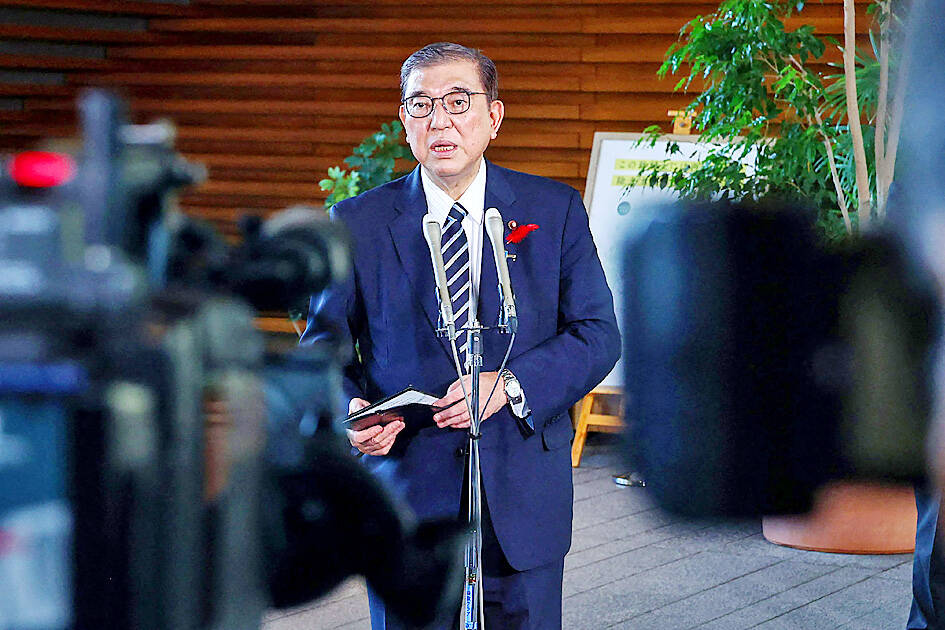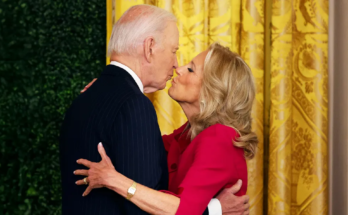Bloomberg and Reuters, TOKYO
Japanese Prime Minister Shigeru Ishiba yesterday said he agreed to continue strengthening the Japan-US alliance and further build ties with mutual allies in his first telephone call with US President Joe Biden after taking over as national leader.
“In addition to increased Japanese defense spending, we covered enhancing how we work together to boost the alliance,” Ishiba said in remarks to reporters after the call.
A self-declared “defense nerd” and former defense minister, Ishiba is a strong supporter of the US-Japan alliance, but has also raised novel ideas on ways to develop military ties, including by building bases for Japan’s military in the US.

Japanese Prime Minister Shigeru Ishiba speaks to reporters at the entrance to the prime minister’s office in Tokyo yesterday.
Photo: AFP
At a news conference on Tuesday after being confirmed as prime minister, Ishiba repeated a point he has often made about the need to make the alliance more like a pact between equal partners.
Ishiba said he did not discuss any revisions to the Status of Forces Agreement that guides how the US military operates in Japan, but added that he hoped it would be a topic of discussion during his administration.
The two leaders discussed developing trilateral ties with South Korea, as well as bolstering a network of security relationships with other countries in the region, including Australia and India, Ishiba said.
According to a separate statement issued by the Japanese Ministry of Foreign Affairs, Ishiba and Biden agreed to closely coordinate their responses to actions by China, as well as North Korea’s nuclear and ballistic missile program, and the issue of Japanese citizens abducted and held by North Korea.
Separately, Japanese Minister of Foreign Affairs Takeshi Iwaya said that the idea of an “Asian NATO” floated by Ishiba is one to consider in the mid-to-long-term, but not now.
“I think it’s one idea for the future,” among efforts to create a multi-layered network of like-minded countries and boost regional deterrence, Iwaya told a news conference in Tokyo.
“It’s difficult to immediately set up a mechanism that would impose mutual defense obligations in Asia, so it’s more of a vision for the future,” he said.
Such a framework would not be aimed at any specific country, Iwaya added when asked whether it was targeting China.



